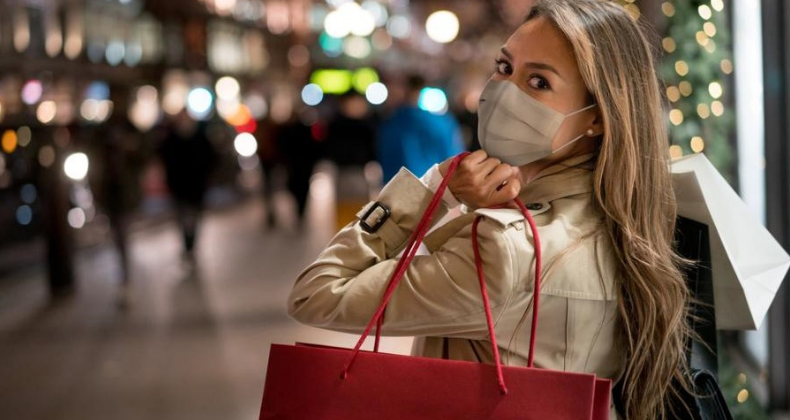Holiday Forecasts Hit By Pandemic

With travel curtailed and spending on such things as restaurant dining sharply limited by the global pandemic, consumers are expected to spend a higher percentage of their gifting budgets on physical goods for the upcoming holiday season, bucking the trend of the last couple of years toward experiential gifts. But those overall holiday budgets will be smaller, according to a collection of recent survey results and economics forecasts.
Lockdowns
Of course, all of this will be played out in the shadow of COVID-19, and any restrictions imposed by governments on their populations will have a huge effect – most particularly shifting an increased amount of purchasing online. For example, the parent of Primark – which has no online business — last week noted that its stores were temporarily closed in six European countries even before a broad UK lockdown went into effect November 5 (slated to last until December 2). The expected sales hit from those closures: £375 million.
Indeed, retailers in the UK are expected to lose $2.6 billion in weekly sales as a result of the just-imposed lockdown, said British Retail Consortium Chief Executive Helen Dickinson.
“Tightening restrictions across the United Kingdom and speculation towards the end of the month of an England-wide lockdown prompted customers to stock up on home comforts and food supplies,” Dickinson said. “During an incredibly challenging year for the industry, many retailers had finally thought that they were finding their footing. The new lockdown in England will now throw away this progress as we enter the crucial Christmas trading period.”
Belt tightening
More than a third of U.S. consumers surveyed by performance marketing firm What If Media in late October said they would spend less this year than last on holiday gifts, citing “either loss of income due to the pandemic, or fear of its impact on their financial future.” Indeed, the National Retail Federation forecast consumer average spending on gifts, decorations and food to decrease 4.7% to $997, with the average for gifts falling 1.3% to $650.
NPD Group predicts that “Consumers will look to splurge on their own needs and deal with the guilt of missing in-person celebrations” by upping the ante on their gift-giving, with 40% of shoppers buying more presents “to bring joy during challenging times.” But its consumer survey also forecasts that the average U.S. holiday shopper will spend 6.6% less ($691) on holiday gifts this season.
Suppliers are feeling the pinch. Funko forecast an 8%-10% decline in fourth quarter revenue due partly to the store shutdowns in Europe and the UK, a move that’s expected to have a $20 million impact on fourth quarter sales, CFO Jennifer Jung said in releasing third quarter financial results last week.
“Notwithstanding the global uncertainty around potential pandemic restrictions, we expect to see strong performance within our domestic mass market, third party e-commerce and B2C channels offset by continued softness in Europe and the U.S. specialty retail channel,” Funko CEO Brian Mariotti said.
According to a McKinsey survey, 65% of U.S. consumers said they plan to buy clothing, 54% expect to purchase gift cards, 47% will purchase toys and 42% will buy consumer electronics.




